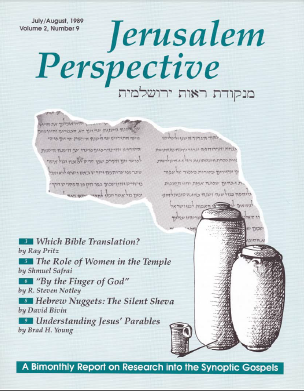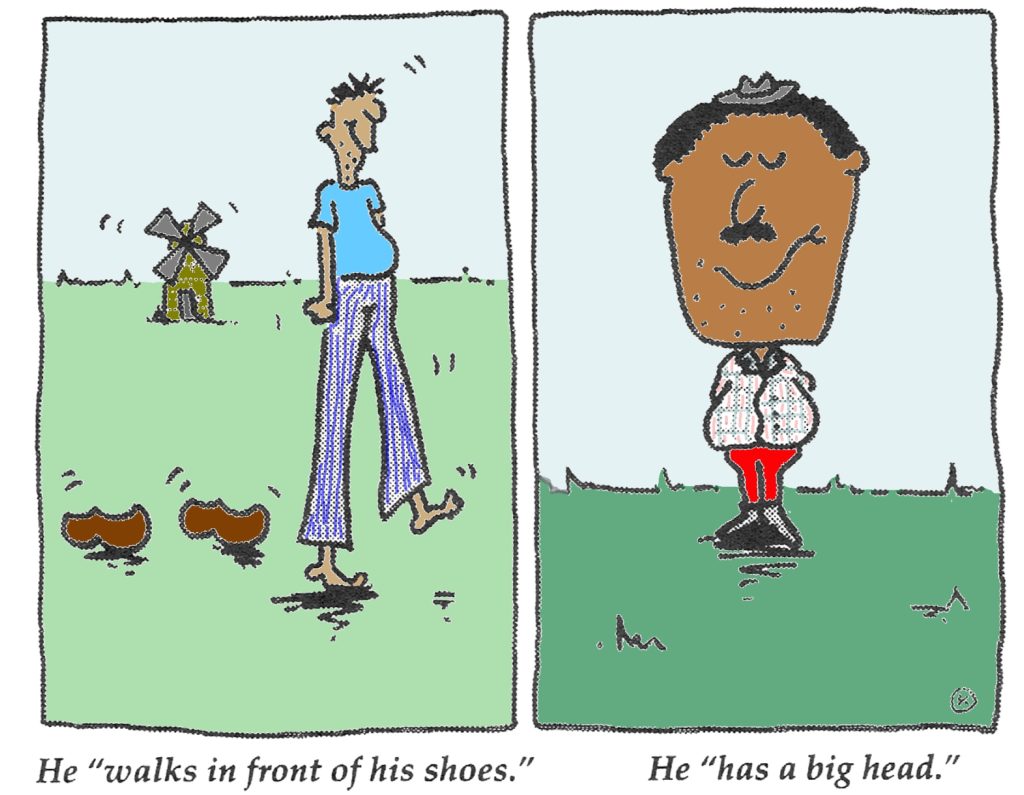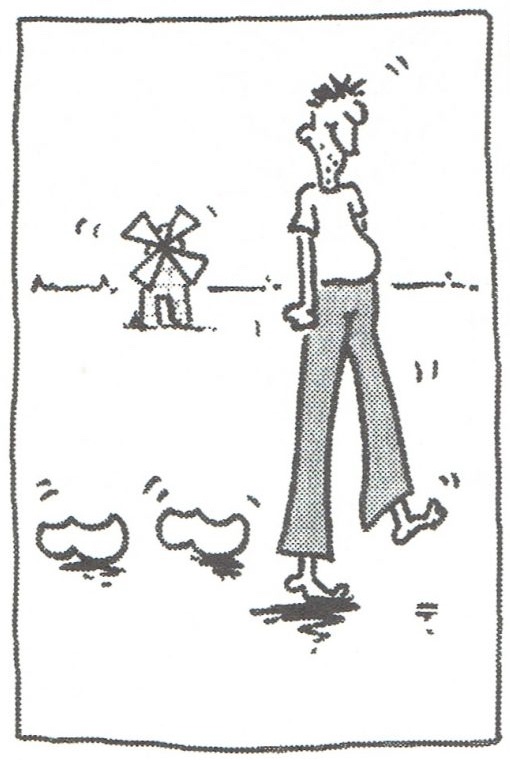Which English Bible translation is the best? Which is the most accurate? With the profusion of translations available today, these questions have become common and important among those who use their Bibles regularly.
What is Translation?
To answer these questions, we must first understand the peculiar difficulties involved in the process of translation. When God confused the languages of men at the tower of Babel, he ensured that not only would vocabulary be different but that grammar too would vary widely from language to language. And because people live in different environments and cultures, special ways of describing things develop within each language group.
These are called idioms, and they can be very colorful. For example, where American English-speakers might describe a proud person as having a “big head,” in Holland it would be said that he “walks in conceit next to his shoes” (Hij loopt van verwaandheid naast z’n schoenen), or, in better English, “He is so conceited he is walking beside his shoes.”
Translators speak of a tension that exists between maintaining the form of the source language and conveying the meaning into the receptor language. It would be possible to translate the phrase he “has a big head” word for word into Dutch, but the Dutch reader might then think the man needs a large size hat. The form of the English would have been maintained perfectly, but the meaning would be lost.
Literal or Accurate?
When people ask which Bible translation is the most accurate, they often mean which is the most literal. The two are not always the same. In the example of the man with a “big head,” the literal translation is only accurate for the Dutch-speaker who has a linguistic interest in the actual English words. For a person who wants to get the meaning of the original, the more accurate translation into Dutch would speak of shoes rather than a head.
Let us look at a couple of examples from the Hebrew of the Bible. A common phrase in the Bible is that a person “found favor in the eyes of” someone. For those of us who have read the Bible most of our lives, this may sound like a reasonable and normal expression. We probably would never use it in a conversation about a non-biblical subject, but when we encounter this expression in our Bibles we feel we basically know what it means. In other words, the usefulness of this idiom is limited to the Bible because it is not English but Hebrew. When the earliest English Bible translators came to this phrase, they decided to translate it word-for-word, even though such an expression did not exist in English.
In modern English we would say a person “liked” someone. When an English-speaker reads or hears that sentence, it conveys to him the same sense received by a Hebrew-speaker who hears that a person “found favor in the eyes of” someone. But we have conveyed the meaning of the Hebrew into English with no mention of finding, favor or eyes. Which translation is more literal? Which is more accurate?
Let us take another example. Suppose you overhear these statements: “My son has decided, against my advice, to drop out of school. I will not stand in his way.” How do you understand the last sentence? Undoubtedly you understand it to mean something like “I will not prevent him.” In fact in English that is the only meaning the phrase can carry in this context. Psalm 1:1 includes what appears to be the same idiom: “Blessed is the man that walketh not in the counsel of the ungodly, nor standeth in the way of sinners…” (King James Version). This is a fairly literal translation from the Hebrew. (A completely literal translation would read, “Blessed the man who not walked in the counsel of wicked and in the way of sinners not stood.”)
In modern English we would express the opening words of the Psalm something like this: “Blessed is the man who does not follow the advice of wicked people, who does not walk the way of sinners….” The second part of the Hebrew sentence is parallel to the first part, that is, the two parts are synonymous. And indeed the Hebrew expression “not stand in his way” means “not do what he does.”
A good test of a Bible translation is how easy it is to understand for people who are not familiar with religious jargon. In the case of the second part of Psalm 1:1, an English-speaker unfamiliar with the Bible might understand not only the King James Version but also the New International Version, Revised Standard Version as well as several other “modern” translations to be saying, “It is just as well to let the wicked do as they please,” which, of course, is almost the opposite of what the Hebrew actually means. In this instance, then, literal is not accurate.
Which is Best?
Which translation is best cannot be answered without determining what the questioner means by “best.” If he means best for knowing what original words stand behind the English, then he will want a translation which preserves the form of the source language, even if it is at the expense of the meaning. This will be useful for students of biblical languages or other Bible-related subjects. If, however, the questioner means best for knowing what the original words meant, then he will want a version which translates meaning for meaning, even if it is at the expense of the form of the original language.
Many of us read our Bibles at different times for different purposes. Sometimes we just want to read and let God speak to us in our own personal relationship with him. At such times it may be a hindrance to stop every couple of words to analyze the etymology of a word. At other times we may want to do an in-depth study of a passage, comparing it with similar passages in the Bible to find the range of meaning the words can have throughout the Bible. This can be a time consuming process, and stopping to meditate on each verse would keep us from finishing the study.
I would make several suggestions. First of all, it is probably a good idea to have two Bibles to use for different purposes. For a translation which transmits the form better than the meaning, I would recommend the New American Standard Bible or the King James Version. For a translation which conveys meaning at the expense of form, I would recommend the Good News Bible or the New Jerusalem Bible. Translations which have tried to find a middle road between meaning and form are the New International Version and the Revised Standard Version.
My second suggestion would be not simply to accept my recommendations about translations, but to test several translations yourself. If you have a regular program of reading through the Bible, then read it each time in a different translation.

A reader in San Clemente, California, U.S.A., writes:
In a recent edition of Ministries Today, I read an excerpt from Jerusalem Perspective called “Which Bible Translation?” by Dr. Ray Pritz. I found the article very interesting, however I would like to comment on one point. In discussing idioms you wrote, “Where American English-speakers might describe a proud person as having a ‘big head,’ in Holland it would be said that he ‘walks in front of his shoes.'” That is not quite correct. The saying in Holland would be: Hij loopt van verwaandheid naast z’n schoenen. A literal translation is: “He walks in conceitment next to his shoes,” or in better English: “He is so conceited he is walking beside his shoes.” Another funny idiom is about laughing. “He’s laughing his head off” is quite an acceptable idiom in the United States. Translated into Dutch this would mean a literal separation of the head from the body. The Dutch instead say: “He laughed himself to death.” But no one ever thinks of the man as actually having died.
Author Ray Pritz responds:
Thank you for putting me straight. Your idiom about laughing reminds me of an experience an uncle of mine had when speaking to a group in Japan. He began his address by saying he was “tickled to death” to be there, and there was a gasp from the audience. His interpreter had translated: “He scratched himself till he died.” Literal? Very. Accurate? Not at all.

Paid Content
Premium Members and Friends of JP must be logged in to access this content: Login
If you do not have a paid subscription, please consider registering as a Premium Member starting at $10/month (paid monthly) or only $5/month (paid annually): Register
One Time Purchase Rather Than Membership
Rather than purchasing a membership subscription, you may purchase access to this single page for $1.99 USD. To purchase access we strongly encourage users to first register for a free account with JP (Register), which will make the process of accessing your purchase much simpler. Once you have registered you may login and purchase access to this page at this link:



































































































